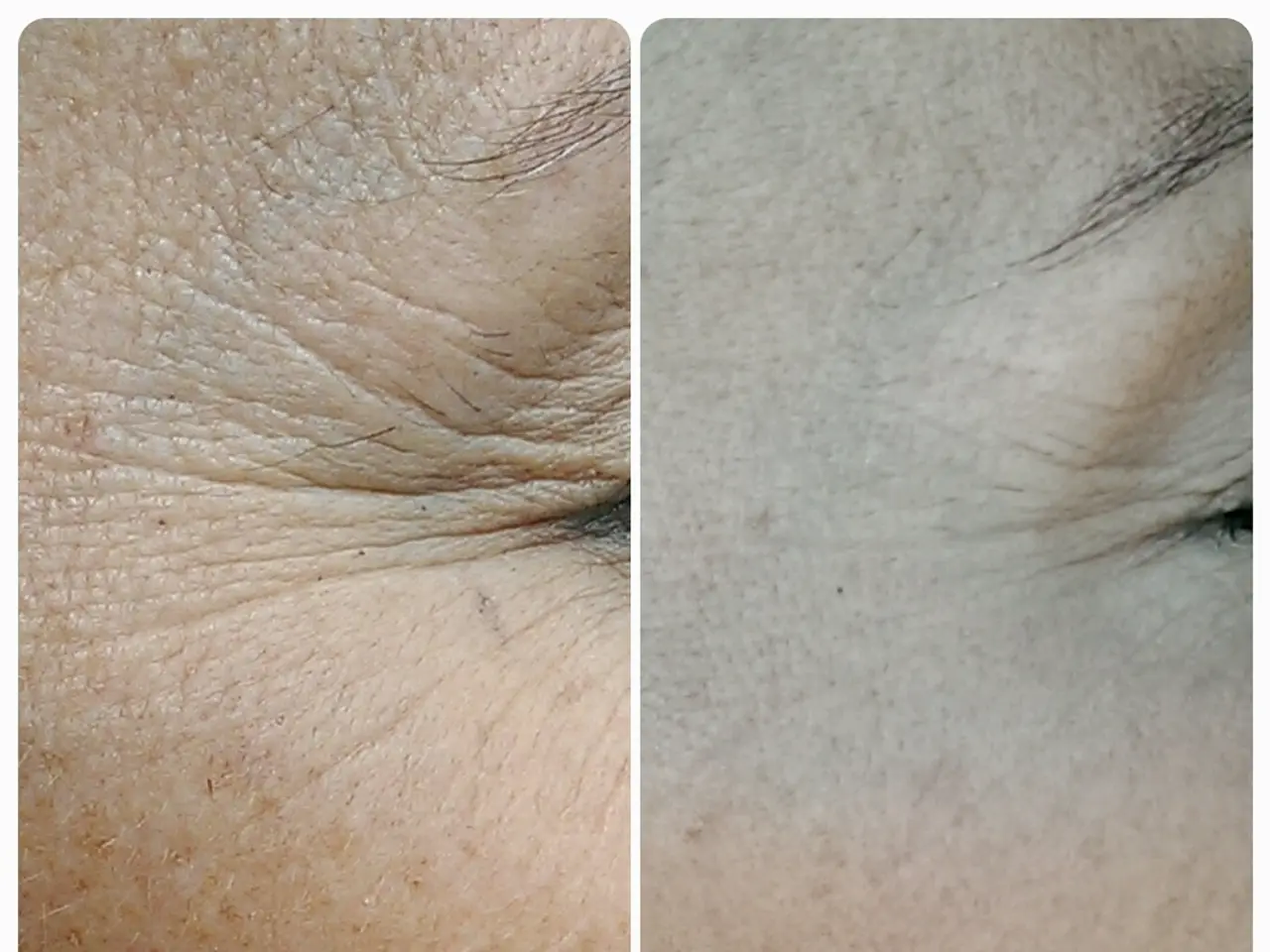Advances in AI in the field of dermatology: setting new standards for cosmetic effectiveness
Artificial intelligence (AI) is transforming the fields of dermatology and cosmetics, offering unprecedented opportunities for personalized and efficient diagnoses, treatments, and product development.
In the realm of dermatology, AI is making significant strides in various areas:
- Skin cancer detection: Deep learning algorithms, such as convolutional neural networks (CNNs), are being used to analyze skin lesion images and identify malignancies like melanoma. Systems like the NHS-approved DERM achieve negative predictive values above 99%, helping to safely exclude melanoma and reduce unnecessary biopsies [1][3].
- Teledermatology: AI platforms facilitate remote dermatology consultations by analyzing images submitted by patients, offering preliminary assessments, and providing real-time feedback on image quality to ensure diagnostic reliability. This is particularly beneficial where specialist access is limited [1].
- Improving access and efficiency: Given the rising demand and wait times for dermatology care, AI aids in early screening and triaging, streamlining clinical workflows and enhancing timely patient care [3].
- Personalized skincare guidance: Tools like SkinGPT use AI to help patients and clinicians better understand treatment efficacy visually and provide personalized treatment options, including for conditions like vitiligo [4].
Moving into the world of cosmetics, AI is impacting both product development and consumer experience:
- Formulation and safety assessment: AI-driven predictive modeling integrates computational toxicology and machine learning (ML) to predict skin sensitization risks such as allergic contact dermatitis early in the cosmetic formulation process. This helps in designing safer and more effective products by linking formulation science with dermatological outcomes.
- Personalized beauty and product recommendations: AI, trained on large datasets with dermatologist annotations, enables highly customized skincare and makeup recommendations tailored to individual skin types and tones. For example, L’Oréal Paris’s Beauty Genius uses AI to analyze user skin data and suggest personalized products, improving consumer decision making [2].
- Virtual try-ons via augmented reality (AR): Cosmetics brands utilize AI-powered AR to let users virtually test makeup or hair color before purchase, reducing uncertainty and enhancing customer satisfaction [2].
These trends show an integrated approach where AI not only improves clinical dermatology outcomes but also transforms the cosmetic industry by personalizing product development and shopping experiences, bridging scientific insight with consumer needs.
One key example of this integration is Provital's AltheostemTM, a senescence catalyst developed using stem cells derived from the petals of Alcea rosea (rose mallow). Provital has developed an AI-enabled methodology to certify the anti-aging power of AltheostemTM, using a highly reliable AI-based machine learning system to analyze 223,560 images showing the evolution of 70 volunteers aged 45 to 65. The system is capable of predicting the age of subjects in a controlled environment and estimating a reduction of more than 3 years in the apparent visual age of volunteers treated with AltheostemTM [5]. This innovation allows brands to develop predictive and highly selective facial care products.
AI applications in dermatology and cosmetics expand the possibilities of cosmetic science and open doors to new perspectives, such as technological beauty. As research continues, we can expect to see even more remarkable advancements in these fields.
References:
[1] Esteva A, et al. Dermatologist-level classification of skin cancer with deep neural networks. Nature. 2017;542(7639):115–118.
[2] Kang, S., et al. AI in Cosmetics: A Review of Current Applications and Future Perspectives. Trends in Cosmetics & Rare Disorders. 2020;7(1):11.
[3] Beleites B, et al. AI-based triage of skin lesions: A systematic review. Journal of the American Academy of Dermatology. 2020;83(3):578–589.
[4] Bae, J. H., et al. Deep Learning-Based Skin Analysis for Personalized Skincare. Trends in Cosmetics & Rare Disorders. 2020;7(1):5.
[5] Provital. AltheostemTM - The senescence catalyst. [Online]. Available: https://www.provital-cosmetics.com/en/altheostem-tm/
[6] Provital. AltheostemTM - The senescence catalyst: in vivo testing. [Online]. Available: https://www.provital-cosmetics.com/en/altheostem-tm/in-vivo-testing/
- In the realm of health-and-wellness, AI is not only improving clinical outcomes in dermatology, but also revolutionizing the cosmetic industry by personalizing product development and shopping experiences.
- SkinGPT, an AI tool, offers personalized skincare guidance to patients and clinicians, helping to understand treatment efficacy visually and providing personalized treatment options.
- Provital's AltheostemTM, a senescence catalyst developed using AI and stem cells, allows brands to develop predictive and highly selective facial care products based on the analysis of over 223,560 images showing the evolution of aging subjects.




